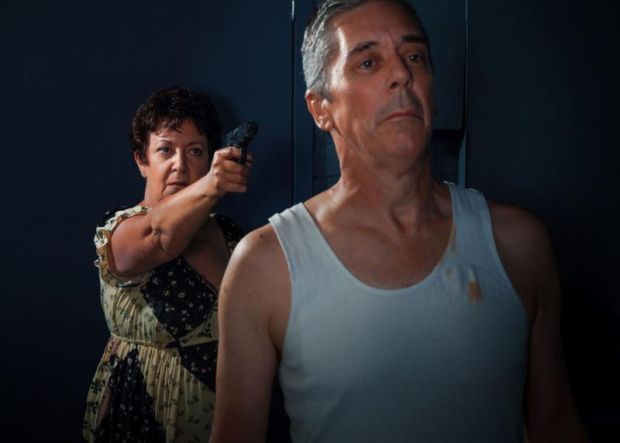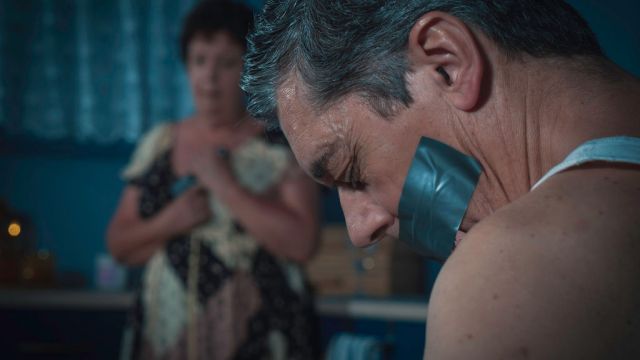Death and the Maiden
Instead of writing a political thriller about a dictatorship, South American playwright Ariel Dorfman produced Death and the Maiden – a story about a husband and wife whose damaged relationship illustrates the results of endemic corruption and violence. As with some of Harold Pinter's political plays – I'm thinking of One for the Road – the exact location is never specifically stated, but events hint that this is Chile under the Pinochet regime of the 1970s and 80s. Husband and wife Gerardo and Paulina Escabar are a nervy and anxious couple. Gerardo is up for promotion to a high-profile anti-corruption commission, and the President himself is visiting them for Sunday lunch. But before that event can take place, a flat tyre on the way home from work generates a chance meeting with a good samaritan, Dr Roberto Miranda, who stops to help out. When Roberto calls around to the Escabar's house, Paulina shudders as she recognises his voice: could this be the man responsible for a savage and violent event in her past? As someone who has been brutally victimised, Paulina is not going to miss her chance to seek revenge. And what transpires is very dark and more than a little Pinteresque.

Dorfman's play is a brave choice by local indie theatre group, Ad Astra. Their very intimate space in a small industrial estate near the Exhibition grounds may be miles away from the Royal Court Theatre in London where this play premiered in 1991, but they have the mettle to take the baton and run with it. Death and the Maiden is wordy and dramatic, sometimes soap-operatic, with thematic dialogue that poetically illustrates Dorfman's themes – the tide going out simply regurgitates all the rubbish on its way back in, not changing the landscape at all; the tendency for violence and retribution to loop back, like violence and abuse does, generation after generation. There is a claustrophobic edge that the small Ad Astra theatre set (designed by director Jacqueline Kerr) suited well.

The cast rise to the challenge and work well together to tackle the sometimes difficult material. Another layer in the script is a rift between how the world works for men and women. Director, Jacqueline Kerr, has achieved a collaborative and cooperative performance from her three leads, essential to the audience's assimilation of such confronting material. Sandra Harman plays Paulina with the strength of a person determined to set the record straight. At the same time, we might not completely believe her story because she is also like a person vulnerable to obsessing about insanity running in the family – always anxiously on the lookout for tell-tale signs of her own madness. Adding fuel to her fire is the fact that Roberto has a tape of Shubert's 'Death and the Maiden' in his car – the music she remembers hearing during her time captive, the dying composer's piece now torturing her memory as a motif of her ordeal. When Paulina attempts to record Roberto confess to his crimes, it's the evidence that her husband Gerardo desperately needs to protect his own career. As Gerardo, Gary Farmer-Trickett captures the tension of the situation, and the ambition that causes many to sweep the truth aside. Tom Coyle is suitably stoic as Roberto, but always with an undertone of violence that could explode. While an extended scene change near the end is too long, the resulting denouement makes good use of the theatre space, and also cleverly makes the audience complicit in the action, watching passively while the tension continues to build. This play is thought-provoking and many lively discussions ensued after the final curtain.
Beth Keehn
Photographer: Christopher Sharman
Subscribe to our E-Newsletter, buy our latest print edition or find a Performing Arts book at Book Nook.

